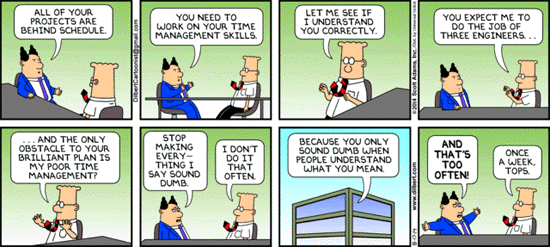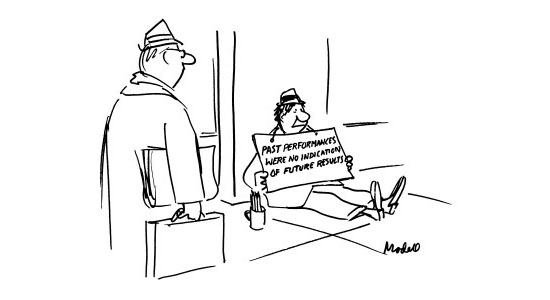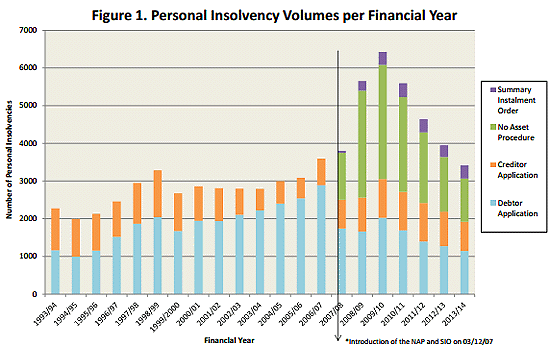
Here's my edition of Top 10 links from around the Internet today.
We have a Monday-Wednesday-Friday schedule for Top 10. Bernard will be back with his version this Wednesday. We will have another guest posting on Friday.
As always, we welcome your additions in the comments below or via email to david.chaston@interest.co.nz.
See all previous Top 10s here.

1. Has Yellen just opened the door?
Over the weekend Janet Yellen gave a speech at Jackson Hole focused on the problem of interpreting the US labour market progress.
That is something she has elevated to the centre of the US Fed's focus. 'Normal' monetary policy can't resume until the labour markets are normal, she has said on many occasions.
And its not just the levels of unemployment she wants to see come down. She also want to see wage and income rises.
But having set that as the focus for a change in loose-money policy, she now has the problem of deciding when is the right time to change course.
There is a 'real debate' going on inside the vast Federal Reserve system. But only the FOMC decides.
This is how she ended up her speech in Wyoming. Is she setting the stage for an earlier return to rising interest rates?
At the FOMC's most recent meeting, the Committee judged, based on a range of labor market indicators, that "labor market conditions improved." Indeed, as I noted earlier, they have improved more rapidly than the Committee had anticipated. Nevertheless, the Committee judged that underutilization of labor resources still remains significant. Given this assessment and the Committee's expectation that inflation will gradually move up toward its longer-run objective, the Committee reaffirmed its view "that it likely will be appropriate to maintain the current target range for the federal funds rate for a considerable time after our current asset purchase program ends, especially if projected inflation continues to run below the Committee's 2 percent longer-run goal, and provided that longer-term inflation expectations remain well anchored." But if progress in the labor market continues to be more rapid than anticipated by the Committee or if inflation moves up more rapidly than anticipated, resulting in faster convergence toward our dual objectives, then increases in the federal funds rate target could come sooner than the Committee currently expects and could be more rapid thereafter.

2. New leverage trouble
The risks of high leverage - often as a consequence of low profitability - are mounting in China. Many observers have warned of such risks in the past and nothing terrible has happened yet. But insider Yu Yongding is still worried. He explains at Project Syndicate:
The fundamental problems that triggered alarm bells in the first place – including real-estate bubbles, local-government debt, rapid growth in shadow-banking activity, and rising corporate leverage ratios – remain unresolved. Of these, the most immediate threat to China’s economic and financial stability is the combination of high borrowing costs, low profitability for nonfinancial corporations, and very high corporate leverage ratios.
Chinese firms’ profitability amounted to just over 6% last year, with 2012 profits for China’s 500 largest (mostly state-owned) corporations barely exceeding 2%.
Meanwhile, interest rates on bank loans to nonfinancial enterprises remain close to 7%, despite having fallen slightly over the last year. And, in the second quarter of this year, the annualized interest rate on loans to small nonfinancial corporations surpassed 25%.
With insufficient profits to use for investment, nonfinancial corporations will become increasingly dependent on external finance. As their leverage ratios increase, so will their risk premiums, causing their borrowing costs to rise and undermining their profitability further. This destructive cycle will be difficult to break. For example, if companies reduce investment, they will weaken growth and boost their leverage ratio further.

3. Should businesses be social charities?
Is a company boss who changes his company's affairs to increase its profits acting as "a responsible fiduciary for shareholders"? Even if that means shifting the base of the company overseas?
Its always been pretty clear that they are just doing their job for shareholders. But these days that can get you into a whole lot of public opprobrium. Companies are now expected to part of the government agenda, doing all sorts of social functions - including it seems, paying the most tax they can. 'Organising your affairs' according to the rules set by the politicians is now no longer enough; you now need to be seen to abiding by some sort of 'spirit' of what they intended, whether they did or not. Now it is some gadfly (usually unelected, usually a bureaucrat or academic) who determines what that 'intent' is.
Anyway, one person who does not buy into the 'corporate deserter' description is Greg Mankiw. He points out that the US has a special problem because it taxes its companies of worldwide profits, rather than just those made within its territory. Most other countries don't do that.
Anyway, he has a radical idea to fix the US's problem, as he explains in this NY Times piece:
A main feature of the modern multinational corporation is that it is, truly, multinational. It has employees, customers and shareholders around the world. Its place of legal domicile is almost irrelevant. A good tax system would focus more on the economic fundamentals and less on the legal determination of a company’s headquarters.
Most nations recognize this principle by adopting a territorial corporate tax. They tax economic activity that occurs within their borders and exclude from taxation income earned abroad. (That foreign-source income, however, is usually taxed by the nation where it is earned.) Six of the Group of 7 nations have territorial tax systems.
The exception is the United States, which has a worldwide corporate tax. For companies incorporated in the United States, the tax is based on all income, regardless of where it is earned. Again, moving our tax code toward international norms would help slow corporate inversions.
Perhaps the boldest and best response to corporate inversions is to completely rethink the basis of corporate taxation. The first step is to acknowledge that corporations are more like tax collectors than taxpayers. The burden of the corporate tax is ultimately borne by people - some combination of the companies’ employees, customers and shareholders.
So here’s a proposal: Let’s repeal the corporate income tax entirely, and scale back the personal income tax as well. We can replace them with a broad-based tax on consumption. The consumption tax could take the form of a value-added tax, which in other countries has proved to be a remarkably efficient way to raise government revenue.
However, the horse has bolted on that one. It is an unelectable position to have companies paying no tax, irrespective of how economically justified it may be. And that means illogical tax policy and argument forever.

4. By-passing the bankers
Very soon, New Zealand will see the launch of its first peer-to-peer platform. Most people won't know what that means. But if you are a) a saver or investor, or b) need a consumer loan, you ought to check out what these platforms are all about. The first to launch in New Zealand is likely to be Harmoney, and luckily for us it will be the real deal, a fully functional professional offering.
For investors, it should mean better returns on your savings, and for borrowers it should mean lower rates. And the reason is simple, the saver lends to the borrower, with the platform taking a much smaller cut that banks and finance companies do. These sort of platforms have been developed to a sophisticated level in the US and the NZ versions will be built on those experiences.
One great way to learn more about what they are all about (and why people like me think they are an exciting development) is to read this article in The Atlantic, a warts-and-all review. And then await the Harmoney launch.
The matching of individual lenders with borrowers on Lending Club’s Web site takes place anonymously (lenders can see would-be borrowers’ relevant characteristics, just not their name), but each party gets what it wants. Many borrowers can shave a few percentage points off the interest rate on the debt they refinance, and lock in the lower rate for three to five years. Lending Club claims that its loans have so far yielded an annual net return to lenders of about 8 percent, after fees and accounting for losses. It’s worth noting, however, that what lenders gain in yield, they lose in safety: the loans are unsecured, so if a borrower does not pay his debts—and each year, between 3 and 4 percent of Lending Club borrowers do not - the lender can do little about it except absorb the loss and move on. The average consumer loan on Lending Club is about $14,000; many lenders make several loans at once to hedge against the risk of any single loan going bad.

5. Only for the rich
Organic food producers face the inevitable problem - lack of organic ingredients necessary to scale up. They are just not prepared to pay what is needed for suppliers to offer the volumes they need. They seem to be in denial that lower yields will mean they need to offer higher prices. Or perhaps they are caught when their customers won't pay the necessary premium for the esoteric 'value'. In Australia, they are not happy about water conservation measures limiting their access to cheap product. The real world is impinging on their growth. Maybe they need to accept they will always just be a high-end cottage industry catering to Westmere mums.
(But perhaps NZ can exploit that demand successfully. It's a niche that is certainly there. And price is no object, so long as ambition doesn't spoil the party. )

6. Low credit stress
The level of personal bankruptcies are now back down to levels last seen in the mid 1990's. In fact, if you then added in the No Asset Procedure (NAP) arrangements, the levels are now still below the pre-GFC levels. Credit stress levels are low. It is also interesting that the popularity of NAPs is waning - but then again, you can only do a NAP once.
The ITS annual report also gives some fascinating detail on the ethnicity of those who have ended up needing debt protection - and that breaks quite a few myths about the sorts of people who get caught up in these arrangements.
7. In search of convergence
In an increasingly complex world, something truly odd is happening - many countries that used to be poor are catching up with the developed world. But some are not.
However, overall, there is a building 'convergence' between countries (something like the opposite of growing inequality among individuals).
But what are most succeeding in lowering the gaps between the first and their worlds, and others aren't?
Ricardo Hausmann tries to figure it out at Project Syndicate:
The economic expansion of the last two centuries has been based on an explosion of knowledge about what can be made, and how. An apt metaphor is a game of Scrabble: Goods and services are made by stringing together productive capabilities – inputs, technologies, and tasks – just as words are made by putting letters together. Countries that have a greater variety of capabilities can make more diverse and complex goods, just as a Scrabble player who has more letters can generate more and longer words.
If a country lacks a letter, it cannot make the words that use it. Moreover, the more letters a country has, the greater the number of uses it could find for any additional letter it acquired.
This leads to a “quiescence trap,” which lies at the heart of the Great Divergence. Countries with few “letters” lack incentives to accumulate more letters, because they cannot do much with any additional one: you would not want a TV remote control if you didn’t have a TV, and you would not want a TV broadcasting company if your potential customers lacked electricity.
This trap becomes deeper the longer the alphabet and the longer the words. The last two centuries have seen an explosion in technologies – letters – and in the complexity of goods and services that can be made with them. So the techies get techier, and the laggards fall further behind.
Why, then, are some poorer countries now converging? Is the technological alphabet getting shorter? Are products getting simpler?
Obviously not. What is happening is that globalization has split up value chains, allowing trade to move from words to syllables. Now, countries can get into business with fewer letters and add letters more parsimoniously.
Participating in global value chains is an alternative way to learn by doing that is potentially more powerful than closing markets to foreign competition. It enables a parsimonious accumulation of productive capabilities by reducing the number of capabilities that need to be in place in order to get into business.
This strategy requires a highly open trade policy, because it requires sending goods across borders many times. But this does not imply laissez-faire; on the contrary, it requires activist policies in many areas, such as education and training, infrastructure, R&D, business promotion, and the development of links to the global economy.

8. Being high-minded without the burden of moral restraint
Do 'greed' and 'capitalism' go together naturally? Most people think so. But 'greed' is important in an open capitalist society because it can be beaten. It will always get its come-uppence from 'creative destruction'. These days we prefer to talk about 'disruption', but the impact is the same. The core requirement is change. The absolute worst thing society can do is slow down or prevent 'change'. Then 'greed' takes hold.
Open competition - with appropriate and strong anti-competitive sanctions - are the best ways to have healthy capitalism. Perhaps things move too fast for some (these days of anti-foreigner - usually masking anti-change - pre-election rhetoric gives it a nasty overtone). But it's the anti-change conservatives who have the most angst because deep down they know they will always lose. There are always folks who will whine, but 5 minutes of thinking will show them that it is better to be work to advantage themselves positively. That way, societies move forward and prosperity extends. This is the real shame of inequality - well-meaning but errant rules have allowed some to engorge themselves protected by those rules from that creative destruction that should level the field.
Here is a 300 year review of 'Greed'. It's well worth revisiting these issues.
According to Schumpeter, what drove an economy was headlong innovation, not careful administration. This was the hallmark of entrepreneurial activity, the courageous effort of an inspired mind, not the fruit of corporate collaboration.

9. The rule of law
Argentinean bonds that have been defaulted were issued (by them) under the law of New York, but the Argentine government is struggling with the consequences. And the judge overseeing the case is also struggling with intransigence on both sides. He's ruled, but Argentina won't accept that he has any jurisdiction over 'their' default. They are rushing through new laws now trying to avoid New York. It looks like a lame and irrelevant effort.
Meanwhile the saga drags on and everyone now has short fuses. This from Dealbook:
Exasperated lawyers for a group of New York hedge funds that are seeking more than $1.5 billion in bond payments that Argentina has refused to pay pleaded with the judge to take a harsher stance.
In a heated moment, one of the lawyers, Robert A. Cohen of Dechert, even went so far as to propose monetary and other sanctions that would “bite the republic in a way that will make the republic pay.”
Judge Thomas P. Griesa of the Federal District Court in Manhattan held the emergency hearing on Thursday at the request of the hedge funds’ lawyers after Argentina’s president, Cristina Fernandez de Kirchner, announced on Tuesday that her government was proposing legislation to bypass a ruling by Judge Griesa that has prevented Argentina from making regular payments to its bondholders.
The judge at times indicated his own frustration at what he called years of “lawless” actions by Argentina in his courtroom. But, he added, “In my judgment, it does not add to the scales of settlement to make a finding of contempt.”

10. Today's quote
"You've got to be very careful if you don't know where you are going, because you might not get there." - Yogi Berra

5 Comments
Re #5
"But perhaps NZ can exploit that demand successfully. It's a niche that is certainly there. And price is no object, so long as ambition doesn't spoil the party."
That would be another good reason to ban Genetic Engineering in NZ.
You don't need to ban genetic Engineering in NZ. There are no doubt some very useful things that scientists can do to food that can be fully tested safely before release. Blanket bans are not the best way to go in my opinion.
In saying the above I am a green supporter. We can't however say to our right wing climate denier friends, "but the science is clear the world is heating" and then be but scientists are wrong about the safety of geneticly Engineered food. We can't just use science when the results suit us.
Party vote Green for a smarter greener economy ... and possibly some GE crops
And yet, and yet.... the insulin for diabetics is made from GE'd e.coli...and has been since the mid-80's. Which means, if my addition is correct, that NZ hasn't been GE-Free for um - umpty-ump years.
Slogans are no substitute for Science, but one should not ever mistake Consensus for Science. Just think about the tortuous history of plate tectonics.....laughed at from the 1930's to the 1970's by 97% of Real Scientists.
Very enlightening discussion with Matthew Hooten this morning with Katherine Ryan. He seems upset with the Nats now and also did a study of all the polls before the last election, finding that they consistently overstated the Nat results by 5%. He recommends subtracting 5% from any Nat result in present polls. What leads to such bias in NZ polling?
It's a well-known set of biases inherent in all random sample selection surveys. In this case two biases probably came into play:
1. The method for contacting the survey sample (telephone in the evening) tends to contact National voters more than other voters
2. Can't remember what it is called but the bias towards telling the questioner the "right answer" - probably favours the incumbent government at any one time
I cannot recommend statschat.org,nz enough if you have an interest in seeing how stats work out in real life.
In fact they have posted a must read for all journalists and bloggers on what the "margin of error" is in polling. All journalists should have to pass a test on this subject before they are allowed to write anything on political polls.


We welcome your comments below. If you are not already registered, please register to comment
Remember we welcome robust, respectful and insightful debate. We don't welcome abusive or defamatory comments and will de-register those repeatedly making such comments. Our current comment policy is here.